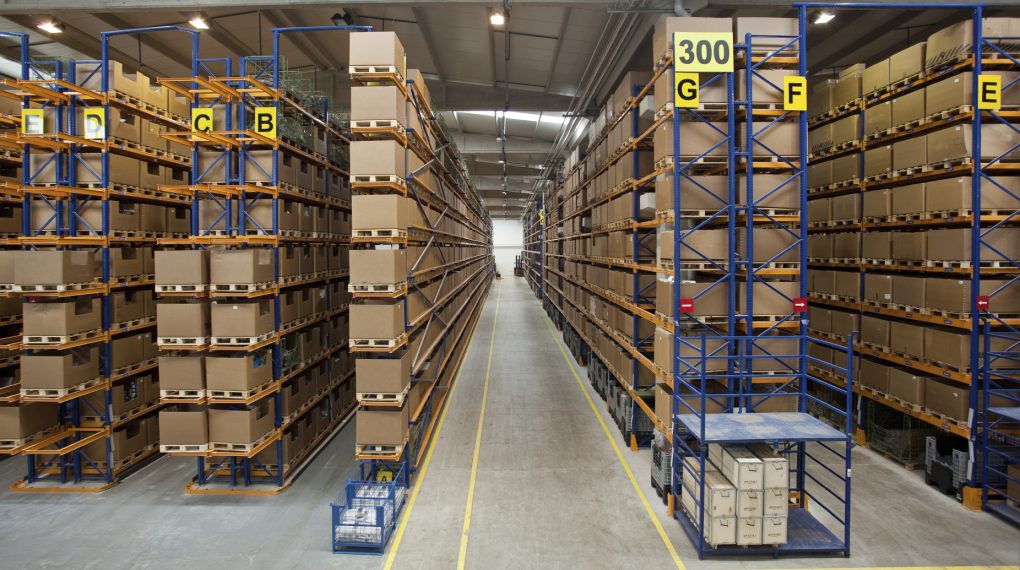Read this article to learn about the meaning, types, objectives, and functions of warehousing…
Meaning of Warehousing-
What is Warehousing??
Warehousing is a place where goods and products are stored prior to it being distributed, sold or used. The act of re-position of material is called as warehousing.
Through warehousing or warehouses, the businesses or companies can store our products in big godowns and protect them from various uncertainties. These warehouses are used by wholesalers, importers, exporters, customs, etc.
Types / Kinds of Warehouses-

Image Source: improsys.in
In this, there are different types of warehouses are also known as different kinds of warehouses such as…
- Public Warehouse
- Private Warehouse
- Bonded Warehouse
- Cool Storage Warehouse
1.Public Warehouse-
It is a warehouse where any person can place his wood or material for storage against some monetary charges. Their warehouses are established by the government as well as a person from the public. These warehouses are also known as government warehouses.
This warehouse provides a proper structure of security from other government legal policies and procedures because the warehouses are totally managed by government and their social service team. Public warehouses are very efficient for businessmen because they are situated near railway lines or main roads, so as to provide a quick facility of transportation.
2. Private Warehouse-
It is owned or used by manufacturers or wholesalers. They are manufactured exclusively for their own purpose. For Example– Emami warehouse to store Emami products. In private warehouses, the goods and products are stored only their own company products and as well as they can charge some amount of rupees to another company or business with the respect of storage facilities.
These types of warehouses are only can afford by big business houses because it takes the heavy cost of construction and maintenance.
3. Bonded Warehouse-
It is a warehouse in which goods may be stored without paying a customs duty or excise duty until there withdrawals. The proprietor enters into a bond that duty will be paid when necessary on goods they store. In this warehouse, the customs duty is very necessary to pay, otherwise, they can’t move their goods from one place to another place.
These warehouses are regulated by the public or private agencies (with proper granted license).
4. Cold Storage Warehouse-
These are the warehouses which are used to store the products which are perishable in nature products like fruits, vegetables, butter, meat, milk cannot be stored in an ordinary warehouse since they require low temperatures and better facility to store them.
In these warehouses, the storage facility provides a better place to publish the products or goods for the purpose of distribution, sold or used.
Objectives / Importance of Warehousing-

Image Source: jubileeshipping.in
The objectives of warehousing are also known as the importance of warehousing and the points are:-
1.Primary Objectives-
(i) Deployment of marketable goods-
In this first objective or importance of the objective of warehousing, warehouse caters the various needs of the marketing function of the company. Any company is not so famous that it has an advance order to supply. Moreover, production and supply have a genuine time difference.
The finished goods are deemed for future delivery in warehouses.
(ii) To meet consumption requirement-
The production process of companies does not work according to market needs in general. Once the product is manufactured it is stored in order to maintain the economies of production, the availability of labor, raw material, and fashion in the market.
2. Secondary Objectives-
(i) Speculative purpose-
In this objective of the importance of the warehousing, some traders used warehouses to dump goods and create artificial scarcity of the item in the market. Because of scarcity increases prices in the market, these traders earn surplus profit by providing them at increased prices.
(ii) As production against anticipated supply-
Sometimes, goods are kept in warehouses to cater to anticipated demand in the future. Through this factor, the prices of products are also can be affected.
Functions of Warehousing-

Image Source: realtyplusmag.com
It includes various basic functions of warehousing like:-
1. Storing function-
This is the first functions of warehousing and it means that the warehouses help to store all the materials or goods or products in the safe and the secure manner. The warehouses are protected from various uncertainties like damages, uncertainties, etc.
2. All-around Function-
In this functions of warehousing, the warehouses play a combo role between the vendors and the manufacturers because it helps to receive materials from both manufacturers and vendors and distribute according to their purpose.
3. Stabilization of prices-
Warehouses play an efficient role in the process of price stabilization. It is managed by the formation of time utility by warehousing services. Fall in the costs of materials when supply is in abundance and exceeds in their costs during the break season is avoided.
4. Service function-
This is the fourth functions of warehousing and it means that the warehouses are work for providing the services to our customers and dealers. So, they provide prompt and efficient services to customers with the protection of their goods or materials.
5. Financing-
In this function, the warehouse’s owners or dealers finance the customers against various securities of goods deposited in warehouses. It can act as a security and protection factor for our customers.
6. Information list:-
In this functions of warehousing, the warehouse owners or carers share the list of damage, wastage, and likeage to the customers or dealers of a particular product.
7. Packaging-
In recent days, warehouses provide the facilities of packaging, grading, and processing of goods. They packed up goods in their convenient sizes as per the guidelines and instructions of the owner.
So, these are the functions of warehousing…..

